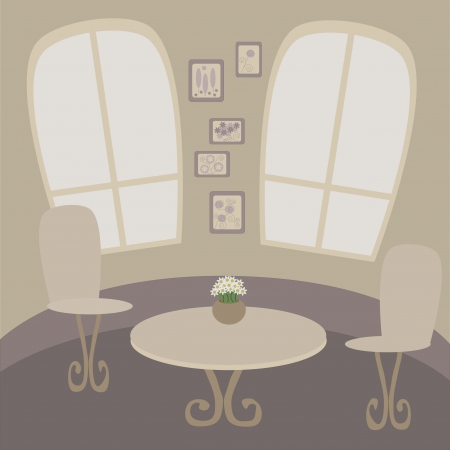The Power of Texture in Modern Design
In today’s modern living spaces, texture is a subtle yet powerful tool. Minimalist interiors often rely on clean lines and neutral color palettes, but it’s the thoughtful mix of materials that transforms simplicity into sophistication. Imagine a velvet sofa set against a concrete wall, or woven throw pillows resting on a leather chair—each element adds its own tactile story. By layering plush fabrics, sleek metals, and natural woods, you create visual interest without overwhelming the room. These contrasting textures invite touch and spark curiosity, making your home feel both curated and comfortable. In American homes where open-plan layouts are common, texture becomes essential for adding depth and defining zones within a space. Whether you prefer the soft warmth of wool rugs or the cool edge of brushed steel, embracing texture allows you to express personality while keeping your design crisp and contemporary.
2. Smart Pattern Play
Patterns have the power to transform your living space, but the key is balance. In a modern home, where clean lines and simplicity reign, its important to introduce patterns thoughtfully to avoid visual clutter. You can start by layering subtle or bold patterns through textiles like throw pillows, blankets, and curtains. Area rugs are another excellent canvas—think geometric prints for a contemporary vibe or soft abstract motifs for a touch of artistry.
Choosing the Right Patterns
Opt for patterns that complement your existing color palette. A monochromatic scheme with a hint of pattern in similar tones creates depth without overpowering your space. If youre feeling adventurous, mix scales by pairing large-scale patterns with smaller, more intricate ones, ensuring they share a unifying color or style.
Pattern Placement Guide
| Element | Subtle Patterns | Bold Patterns |
|---|---|---|
| Pillows & Throws | Thin stripes, tone-on-tone textures | Graphic shapes, high-contrast prints |
| Rugs | Soft geometrics, faded abstracts | Vivid chevrons, oversized florals |
| Wall Treatments | Textured wallpaper, minimalist murals | Dramatic accent walls, statement decals |
Pro Tip: Less Is More
If you want to maintain a modern aesthetic, limit the number of patterned elements in one room. Anchor your design with one standout piece—such as a boldly patterned rug—and let other patterns play a supporting role. This approach keeps your space visually interesting yet cohesive and serene.
![]()
3. Mixing Materials for Contrast
Modern living spaces thrive on contrast and harmony, and one of the best ways to achieve this is through mixing materials. Discover the art of combining wood, stone, glass, and textiles to strike the perfect visual balance in your living room. Pairing a sleek glass coffee table with a textured wool rug instantly creates depth and interest. Wooden shelves alongside marble accents bring warmth and a touch of luxury. Don’t be afraid to experiment—layer soft linen throws over a leather sofa or add metal fixtures next to natural stone surfaces. Each material tells its own story, but together they create a curated, dynamic environment that feels uniquely yours. Embracing this blend not only highlights individual pieces but also unifies the space with a cohesive, modern edge. Remember, it’s all about finding that sweet spot where tactile comfort meets contemporary design.
4. Color and Pattern Synergy
Color palettes and patterns are like the rhythm and melody of a modern living space—they set the tone, mood, and energy. When you thoughtfully pair colors with patterns, your home feels curated and intentional. For example, calming neutrals like soft taupe or warm beige create a serene backdrop for subtle geometric motifs. On the other hand, high-contrast monochrome schemes—think black-and-white stripes or chevrons—bring drama and bold character to your interiors.
Choosing Your Palette
Begin by deciding on the atmosphere you want: do you crave relaxation or vibrancy? Soft blues, muted greens, or sandy tones combined with organic patterns promote tranquility. If you prefer a sophisticated edge, lean into grayscale hues with graphic prints for a chic effect.
Popular Color & Pattern Combinations
| Color Palette | Pattern Type | Mood Created |
|---|---|---|
| Calming Neutrals (Beige, Gray, Cream) | Subtle Geometrics | Peaceful, Minimalist |
| Monochrome (Black & White) | Bolder Stripes or Chevrons | Striking, Modern |
| Earthy Greens & Browns | Organic Leaf or Stone Patterns | Grounded, Natural |
| Pops of Blue or Ochre | Abstract Shapes | Lively, Artistic |
Design Tip:
If you’re feeling adventurous, mix monochrome patterns with a single accent color—a navy velvet pillow against black-and-white herringbone upholstery adds unexpected depth. Remember, it’s all about balance: let one element lead while the other supports, creating harmony that feels effortless but looks stunning.
5. Textural Accessories and Accents
When it comes to transforming a modern living space, small textural touches make a big impact. Layering in textured accessories—like plush throw pillows, chunky knit blankets, or hand-woven baskets—brings warmth and depth to sleek interiors. These pieces break up the monotony of smooth surfaces and add a tactile dimension that invites you to relax and linger.
Mix and Match for Visual Interest
Don’t be afraid to mix materials: combine velvet cushions with linen throws or place a soft faux fur rug underfoot. The interplay between these textures creates visual intrigue and instantly elevates even the simplest decor. In American homes, this kind of layering is not just about comfort—it’s about expressing personality through touchable details.
Artisan Ceramics as Functional Art
Handcrafted ceramics are another way to incorporate texture. A set of sculptural mugs on your coffee table or a glazed vase on a sideboard adds artisan charm. These pieces serve both form and function, making your space feel curated yet lived-in.
Keep It Balanced
The key is balance: too many accents can overwhelm, while just a few well-chosen pieces create an inviting atmosphere. Focus on quality over quantity. Try rotating accessories with the seasons—think cozy knits for fall and breezy cottons for spring—to keep your space feeling fresh and modern all year round.
6. Regional Influences and Personalization
Designing a modern living space is an opportunity to tell your story through textures and patterns. Reflecting your American roots—whether you’re inspired by coastal calm, desert minimalism, or the energy of urban life—adds both depth and authenticity to your home.
Coastal Vibes
If you’re drawn to America’s coasts, embrace breezy linens, woven jute rugs, and soft neutral palettes. Think of subtle stripes reminiscent of nautical influences or organic patterns that echo seashells and sand dunes. Layering these materials creates a relaxed atmosphere with a distinctly coastal character.
Desert Minimalism
For those who love the Southwest’s sun-baked landscapes, opt for tactile elements like raw wood, terracotta, or leather. Earthy tones paired with geometric tribal prints or handcrafted ceramics bring warmth and simplicity. Minimalist patterns and rough-hewn textures reflect the serenity of wide-open spaces while staying effortlessly modern.
Urban Modern
If city life is your muse, bold contrasts and innovative materials are key. Mix industrial metals with sleek glass surfaces, concrete finishes, or high-gloss cabinetry. Graphic prints—think chevrons, grids, or abstract motifs—add visual intrigue while celebrating the dynamic spirit of urban America.
Tips for Personalization
- Blend family heirlooms or local artisan pieces into your décor for a personal touch.
- Layer textures unique to your region: reclaimed barn wood in the Midwest, velvet in New York lofts, or adobe-inspired plaster in the Southwest.
- Select patterns that resonate with your memories or passions—maritime maps, Native American prints, or vintage city blueprints can all make a statement.
Conclusion
Your modern living space should feel like home—rooted in place yet uniquely yours. By thoughtfully choosing textures and patterns that reflect regional influences and personal stories, you create an environment that’s not only stylish but also deeply meaningful.


